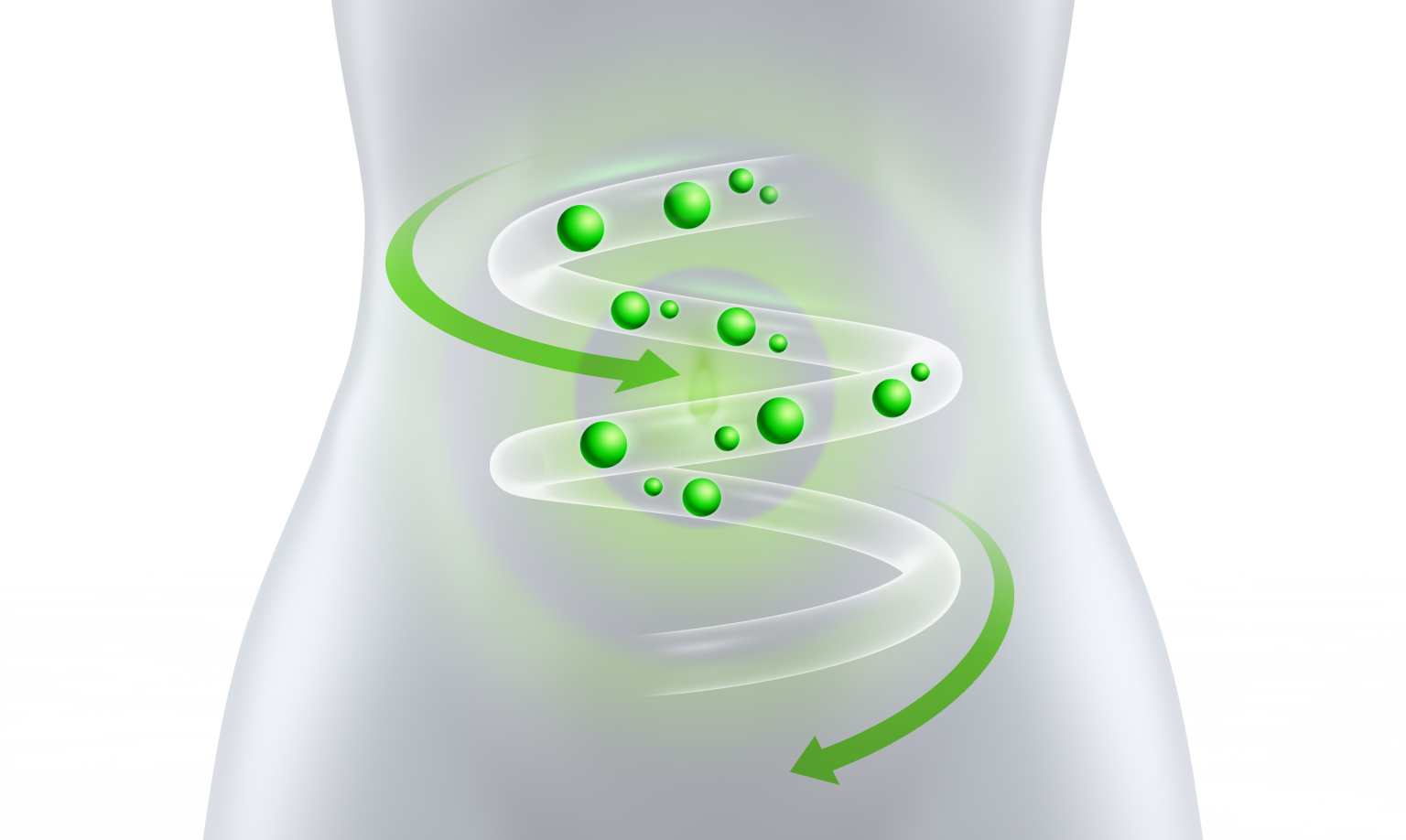
©ag visuell – stock.adobe.com
Probiotics and prebiotics have been in the spotlight when talking about health, in particular, gut health. An exciting, expansive field is emerging in which there are more and more studies and reports on the positive and health-promoting effects on the human body. In the coming years, much more research is certain to be carried out and, as a result, the purposeful consumption of probiotics and prebiotics will become more and more attractive to health-conscious consumers in the future. Many companies have to decide: ‘Can we afford not be involved?’ More and more companies are saying yes and are expanding their portfolios specifically by including a product in the probiotics and prebiotics segment. The current market figures confirm this with an increase of 13.6% in the probiotics segment. The probiotics market increased in the first half of 2022 by more than double the increase in the food supplements segment. [1] When developing your pro- and prebiotic products, Goerlich Pharma is your partner as a competent, German contract manufacturer and developer for the production of a wide range of probiotic and prebiotic product concepts.
What exactly are prebiotics and probiotics?
Probiotics are living microorganisms that can be beneficial to human health when present in adequate amounts. They normally include living fungi or bacteria like lactic acid bacteria or yeasts which accumulate in the bowel, multiply and can lead to positive impacts on health. Antibacterial properties against pathogens are also attributed to them and they generally have no determinable side effects. [2,6] In order to be called a probiotic, specific conditions must be met. On the one hand, its health-promoting effect and the genetic stability should be verified. On the other hand, there should be an impact on the production of lactic acid and bacteriostatic or bactericidal substances, survival in the stomach and proliferation in the bowel. [3]
Already at birth, important bacteria, like lactobacilli and bifidobacteria are transferred to the infant from the mother via the vaginal mucosa and breast milk. Lactobacilli produce lactic acid and, for instance, increase acidity in the bowel which makes it more difficult for harmful bacteria to multiply or colonise there. Bifidobacteria function similarly and can also produce vital enzymes and vitamins that are essential for the development of the immune system, particularly in infancy. [3]
The right timing for the consumption of probiotics and prebiotics can be essential to improving uptake because they are attacked by gastric acid on their way to the bowel. In the morning, before the first meal, the pH value in the stomach is high and therefore, less acidic. Thus, the probiotic bacteria, when taken on an empty stomach have very little contact with digestive enzymes and gastric acid and ultimately reach the bowel in higher quantities. [4]
The gut flora, when imbalanced, can be the cause for the onset of various diseases. Consuming “good” bacteria in addition to a healthy lifestyle, including a balanced diet, adequate exercise and positive stress management, can be very supportive for the body. [3]
The diverse areas of application span from gastrointestinal diseases to allergies, through to the stimulation of the immune system and prevention of antibiotic treatments [2].
Prebiotics are not microorganisms, but instead are components of our food, that are not split and digested in the small intestine and therefore reach the colon undamaged. Prebiotics are dietary fibres like inulin, oligosaccharides or pectin. They are used in the body as food for the intestine’s own “good” bacteria. They also promote the growth of the important bacteria found in the bowel like lactobacilli and bifidobacteria while blocking “bad” and harmful bacteria from bonding to intestinal cells. They also produce short-chain fatty acids that reduce the pH value in the bowel and thus promote the absorption and solubility of specific minerals like magnesium or calcium and also act as a source of energy for intestinal mucosa. Prebiotics can also protect probiotic bacteria on their way through the digestive tract. [3]
Other terms that come up in the field of probiotics and prebiotics are, for instance, synbiotics and postbiotics.
The term synbiotics is used for a mixture of probiotics and prebiotics, like for example the combination of various bacterial strains with inulin in a capsule or stick. There are positive interactions with regard to the intestinal immune system and intestinal flora. [3]
The International Scientific Association of Probiotics and Prebiotics (ISAPP) defines postbiotics as a “preparation of inanimate microorganisms and/or their components that confers a health benefit on the host” [5].
How do probiotics affect the bowel?
Food is digested and energy and nutrients are extracted primarily in the bowel. Probiotics can support the digestion of food by producing enzymes that break down nutrient components (“prebiotics”) that otherwise would not be digested [7].
In addition, fighting off infections is one of the most important functions of the digestive system [8]. Various direct and indirect methods of action are known in relation to probiotics [7]. On the one hand, probiotics can directly fight pathogens by producing antibacterial substances like lactic acid. On the other hand, they compete with the pathogens for nutrients and adhesion and colonisation in the bowel. Many probiotics can absorb or metabolise toxins [7] and stabilise the intestinal barrier [8].
Moreover, probiotics can modify the immune system by activating bowel-associated immune cells [8]. A positive effect was observed in relation to allergic reactions and inflammation where the immune system also plays a role. In fact, the immune system’s activity is inhibited by probiotics. This might explain many of the positive effects shown in studies, e.g. with respect to diarrhoea, digestive disorders, allergies and skin diseases. [7]
The so-called gut-brain axis, via which the brain and bowel can mutually impact each other, mustn’t be forgotten, either. This requires messenger substances that are also produced by the bacteria in the bowel. [8]

©Alexey Tulenkov
Probiotic products
Since not every probiotic bacterial strain demonstrates all of the above-mentioned mechanisms, often mixtures of various strains are offered [7]. In addition, health-related statements, so-called health claims, have so far not been permitted or approved for probiotics. To be permitted to make such statements regarding a product, probiotic strains are often combined with, e.g., relevant vitamins, minerals and plant-based substances for which approved health claims exist.
Thus, a product for general bowel health or bowel rehabilitation, e.g., after taking antibiotics, might look like this: The specific bacteria mixture is supplemented with niacin and vitamin B6. Niacin contributes to maintaining normal mucous membranes and vitamin B6 contributes to the normal functioning of the nervous system. Probiotic mixtures are also offered for the support of the immune system and can be combined with vitamin D3 and/or vitamin C. Vitamins C and D contribute to the normal function of the immune system. [10]
A mixture of L. fermentum, L. rhamnosus, L. plantarum, B. longum demonstrates a positive impact on the gut-brain axis [9]. Due to their known impact on nerves and the psyche, the B vitamins are particularly suitable for combination: e.g., vitamin B6 contributes to normal nervous system function and normal psychological function. Pantothenic acid supports normal mental performance. [10] In addition, a combination with adaptogenic agents is also imaginable: Saffron for the mood and ashwaganda to combat stress or melatonin for better sleep.
The opportunities in the “healthy ageing” sector are also exciting. The bacterial mixture which contains, for example, L. plantarum, B. breve, L. acidophilus, B. animalis subsp. lacits, B. longum and
L. reuteri, is combined with selected micronutrients. They can help with exhaustion and fatigue (e.g., vitamin B12), a weakened immune system (e.g., selenium, zinc, vitamin D), memory problems and diminishing mental capacity (e.g., zinc). Vitamin D contributes to maintaining normal bones and teeth. Selenium and zinc also contribute towards protecting cells from oxidative stress [10]
A probiotic mixture can also be used for the support of “weight loss/metabolism”. The B. breve, L. plantarum, L. rhamnosus bacterial strains can be supplemented with the prebiotic inulin as “bacteria food” and the vitamins B3 and B6. Both vitamins contribute towards, e.g., normal energy metabolism. [10]
Sticks or sachets are particularly suitable as delivery format as the probiotic powder mixture is processed in an extremely gentle manner. Depending on one’s preferences, the stick can be developed to dissolve in water or directly in the mouth. In addition, there are various flavours, colours and sweeteners. This offers the option of customising the product further and aligning it with customer needs and preferences.
Outlook
In addition to the above-mentioned areas of application, there are also many areas that, at first glance, are not related to the bowel. Probiotics are now also offered for oral hygiene, vaginal and heart health. There are also probiotics as supplements for livestock and pet food.
Exciting findings are expected in the coming years in the world of “biotics”. Because research regarding the role probiotics, prebiotics, synbiotics and postbiotics play in our health is still ongoing.
About Goerlich Pharma GmbH
Goerlich Pharma GmbH has been a specialist German contract manufacturer and developer for food supplements, food for special medical purposes and for the special class of probiotics since 1984.
The range of services of Goerlich Pharma GmbH extends to the following products in contract production, development and service: Hard capsules, soft capsules, tablets, sticks, oils, and oil mixtures. Tablets and soft capsules can be coated and thus sensorily and optically refined. Another service is the contract packaging of the products in blister packs, folding boxes, cans and glasses. Goerlich Pharma GmbH is certified according to 9001:2015 and 22000:2018, GMP according to Codex Alimentarius, BIO (VO (EC) 2018/848), Friend of the Sea (FOS), Marine Stewardship Council (MSC) and approved and registered in accordance with the Feed Regulation (EU) 183/2005. Additionally, they have a registration by the U.S. Food and Drug Administration for the food industry.
This means: Quality without compromise. Goerlich Pharma thus offers complete solutions with a system and is happy to be available as a full-service partner for private label food supplements, with a production space of over 3,000 m2 with modern facilities.
In addition, Goerlich Pharma GmbH is an exclusive distributor for Epax® Omega 3 concentrates in Germany, Austria and Switzerland and offers a large selection of products with Epax® or Omega 3 “inside” worldwide, as an alternative also made of vegan algae oil.
Authors
 Anita Käser is Development and Project Coordinator at Goerlich Pharma GmbH. After completing her vocational training as a CTA, she studied “Nutrition and Supply Management” (B. Sc.) and “Food Technology and Nutrition” (M. Sc.). She then worked at TÜV SÜD Product Service GmbH in product testing and at Eurofins Genomics GmbH as an assistant to the laboratory manager.
Anita Käser is Development and Project Coordinator at Goerlich Pharma GmbH. After completing her vocational training as a CTA, she studied “Nutrition and Supply Management” (B. Sc.) and “Food Technology and Nutrition” (M. Sc.). She then worked at TÜV SÜD Product Service GmbH in product testing and at Eurofins Genomics GmbH as an assistant to the laboratory manager.
 Brigitte Hicks is Senior Manager Development at Goerlich Pharma GmbH. After training as a dairy laboratory assistant, she studied biotechnology (Dipl.-Ing. (FH)). She has been employed at Goerlich Pharma GmbH since October 2014 and moved from quality control to the development department in September 2015.
Brigitte Hicks is Senior Manager Development at Goerlich Pharma GmbH. After training as a dairy laboratory assistant, she studied biotechnology (Dipl.-Ing. (FH)). She has been employed at Goerlich Pharma GmbH since October 2014 and moved from quality control to the development department in September 2015.
Sources
-
- IQVIA 01-06 2022 for the previous period
- https://www.pharmawiki.ch/wiki/index.php?wiki=Probiotika (queried on 14 March 2023)
- https://www.omni-biotic.com/de/darmgesundheit/probiotika-und-praebiotika/ (queried on 15 March 2023)
- https://www.zentrum-der-gesundheit.de/ernaehrung/nahrungsergaenzung/probiotika-uebersicht/probiotika-anwendung-und-einnahme (queried on 12 April 2023)
- https://www.nature.com/articles/s41575-021-00440-6#citeas(queried on 12 April 2023)
- https://flexikon.doccheck.com/de/Probiotikum (queried on 14 March 2023)
- Markowiak and Slizewska; Effects of Probiotics, Prebiotics, and Synbiotics on Human Health, Nutrients 2017, 9, 1021
- Cichini F., Depression und Darmmikrobiom – Über die Wirkung von Probiotika auf depressive Symptome – Diplomarbeit, Medizinische Universität Graz [Depression and Intestinal Microbes – On the Effect of Probiotics On Depression Symptoms], 2019
- Marotta A. Effects of Probiotics on Cognitive Reactivity, Mood, and Sleep Quality; Front Psychiatry. 2019 Mar 27;10:164
- https://eur-lex.europa.eu/legal-content/DE/TXT/PDF/?uri=CELEX:32012R0432&qid=1680003176899&from=DE (queried on 27 March 2023)
Der Beitrag For a good gut feeling: The pure power of probiotic bacteria erschien zuerst auf Goerlich Pharma.





